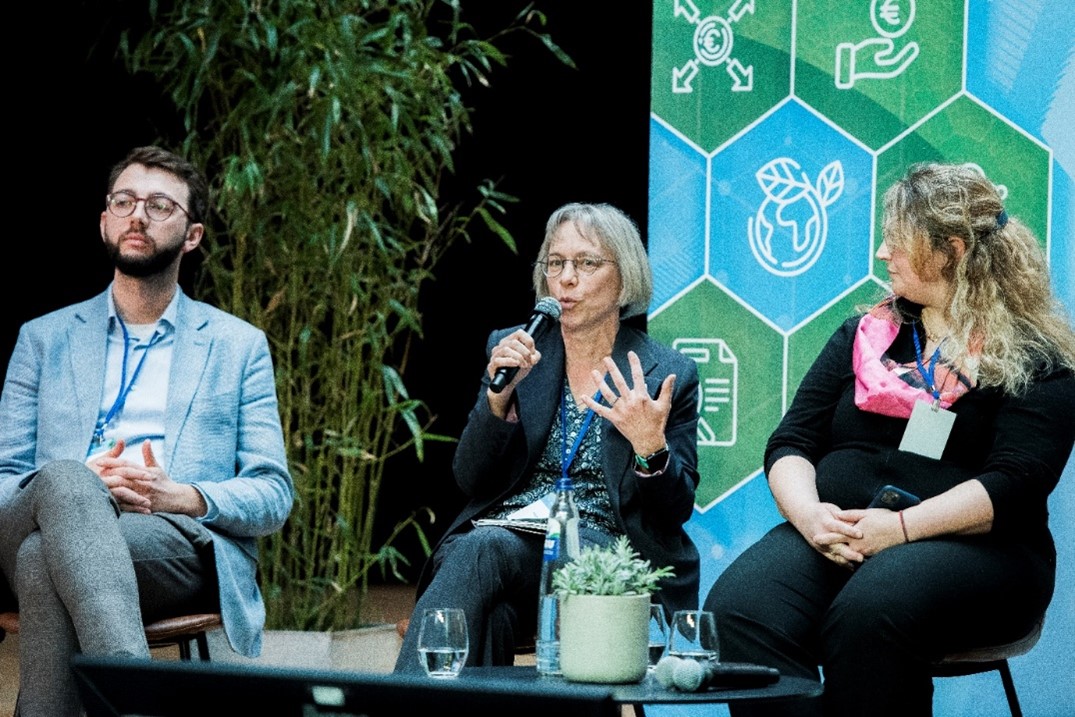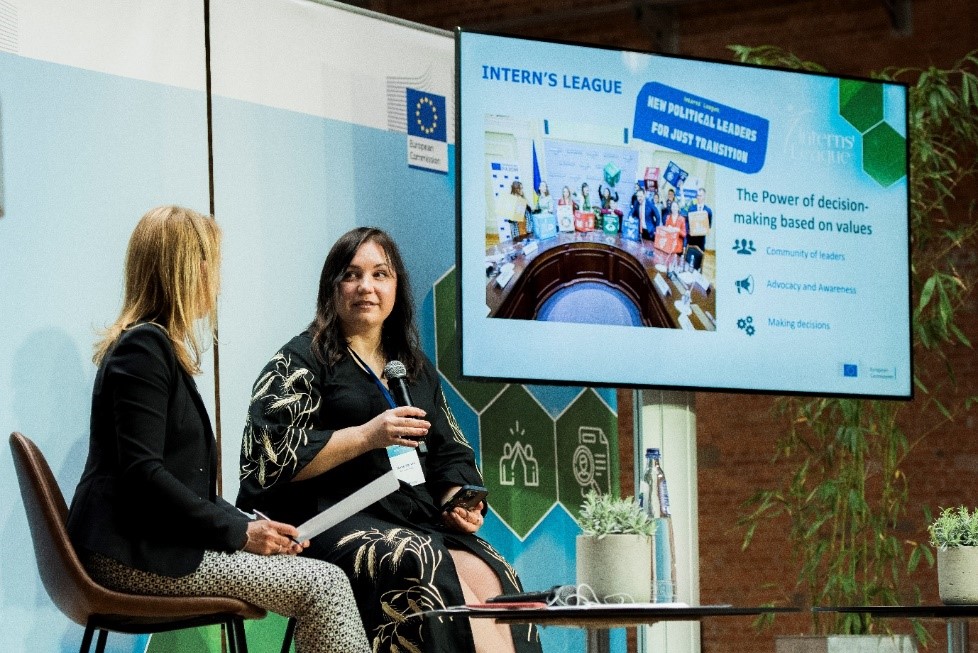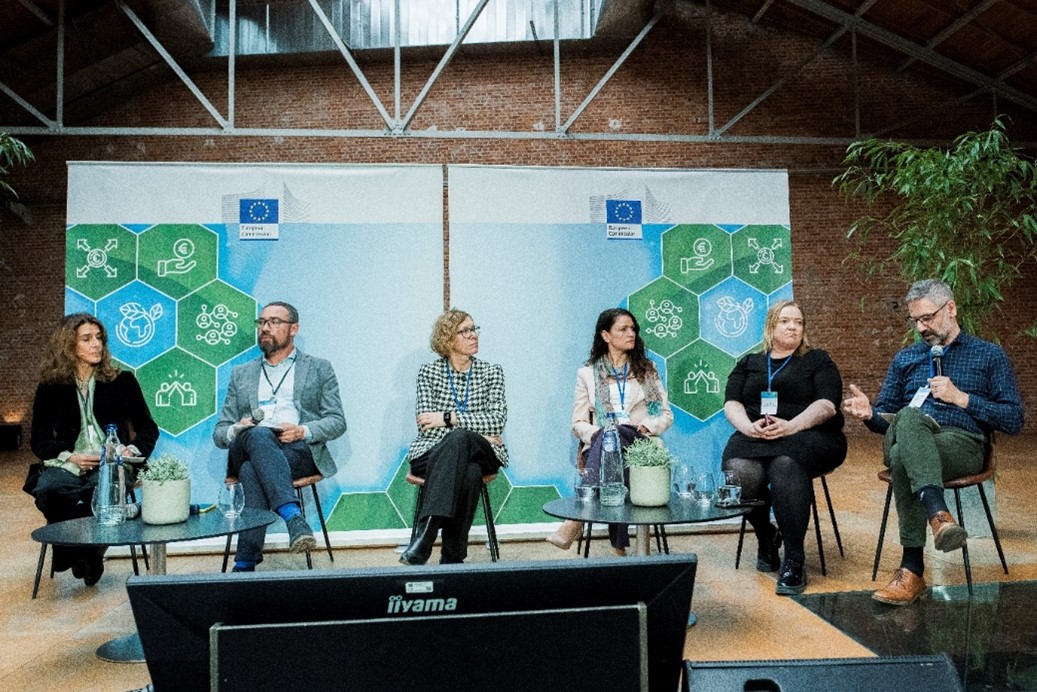The 9th Just Transition Platform Conference

date: 07/05/2024
On 16-17 April, diverse stakeholders including national, local and regional authorities, civil society and representatives of the EU Commission gathered at the Just Transition Platform Conference to take stock of developments in transition regions, and to exchange on effectively shaping and implementing a just transition. In her opening remarks, EU Commissioner for Cohesion and Reforms, Elisa Ferreira, urged stakeholders towards concerted action and mutual inspiration as transition efforts progress. Similarly looking to the future, Commissioner for Energy, Kadri Simson, underscored the importance of making the transition “...socially just for all citizens in the EU, especially in coal and carbon-intensive communities.” This was a through line of the conference, which featured, inter alia, sessions on energy communities, poverty mitigation, and green skills, all of which consistently reaffirmed the need to make transition efforts as fair, inclusive and equitable as possible.
A socially conscious transition
The session on poverty shed light on poverty-stricken communities, especially vulnerable groups, who are often overlooked in climate debates. As poverty has broader implications for society, transition policies need to consider the social aspects of environmental change, and to aim for eradicating, not just ameliorating poverty. Examples of practices to redress poverty were elucidated, such as city cooperation with civil society and vulnerable consumers, or using indicators in different domains like building and energy to understand impacts and produce solutions for poverty that account for social factors. When drawing up national social climate plans, involving local and regional actors was important to ensure a voice for the vulnerable.


Young people as changemakers
In this vein, as a vulnerable demographic, young people also have an essential role in driving just transition forward. Participants in the panel on youth action for just transition highlighted the need to empower young people and boost youth engagement to address environmental challenges in a socially just manner. The session showcased several examples of youth-led initiatives outside the EU that are geared towards tackling emissions, generating green jobs and entrepreneurship, as well as awareness raising, education and capacity building.
Energy communities in transition regions
The notion of placing people and affected communities at the steering wheel of a democratic energy transition carried into the session on energy communities. Energy communities allow local stakeholders to take charge of their energy needs, and are thus an attractive proposition for many regions in transition as they offer a collective approach to financing, owning and governing energy-focused actions. The various projects spotlighted in this session showed that energy communities are a valuable avenue to promoting ownership of local energy actions, so that more stakeholders can be brought into the just transition fold and contribute actively. Managing grid issues, continued financial and legal support, and alignment with digital infrastructures were some of the factors to consider when establishing energy communities.
Green skills and jobs
Employment is a cornerstone of people's lives, and the energy transition has an undeniably disruptive effect on current models of labour. This whets the need for green skills and vocational and education training (VET) fit for a sustainable future. The different regions represented in the green skills panel pointed to this as they discussed the measures taken to cushion the loss of employment triggered by the energy transition. The discussion explored many regions and models of resolving skills challenges. Reinforcing financing structures, establishing partnerships among stakeholders who may have different priorities, tailoring training programmes, and continuously assessing skills needs were among key practices in overcoming skills gaps and preparing people and economies for a different tomorrow.
Indeed, as the European Commissioner for Jobs and Social Rights, Nicolas Schmit, noted in his closing remarks, investing into skills development was critical for present and future generations. He recalled the need to act cooperatively as the EU and Member States manage a shifting economy and coordinate the implementation of forthcoming assistance measures like the Social Climate Fund.
Photos: © HNakos/Babylonia
--
The full report and presentation slides for the event can be found here. Recordings of the sessions can be viewed here.
